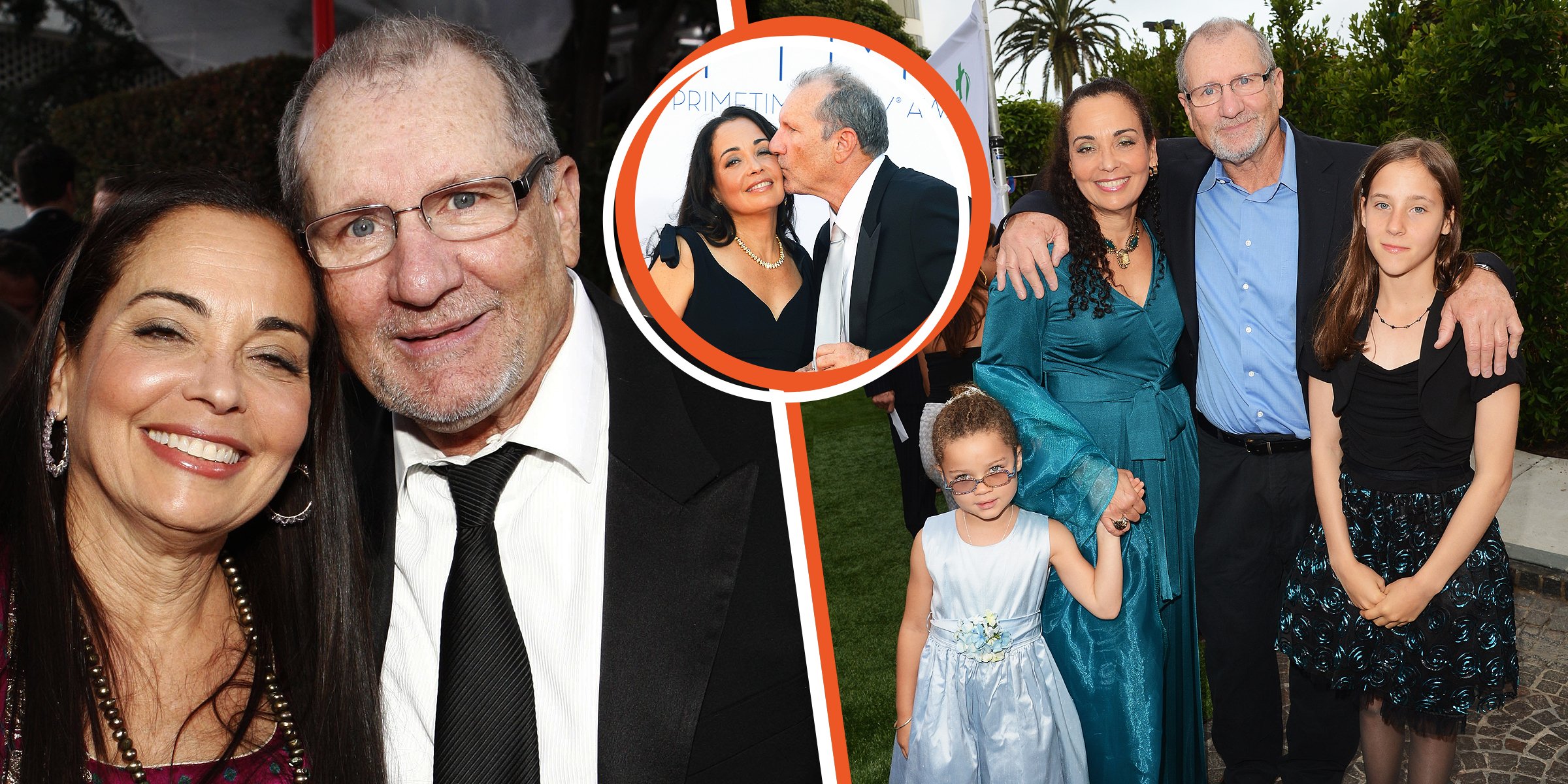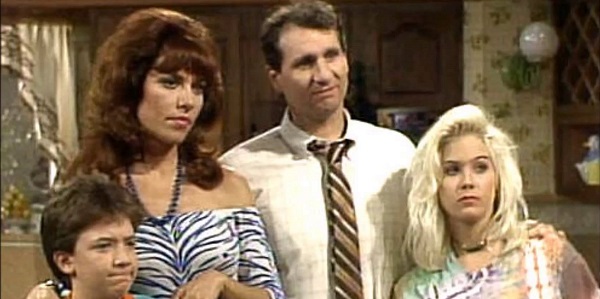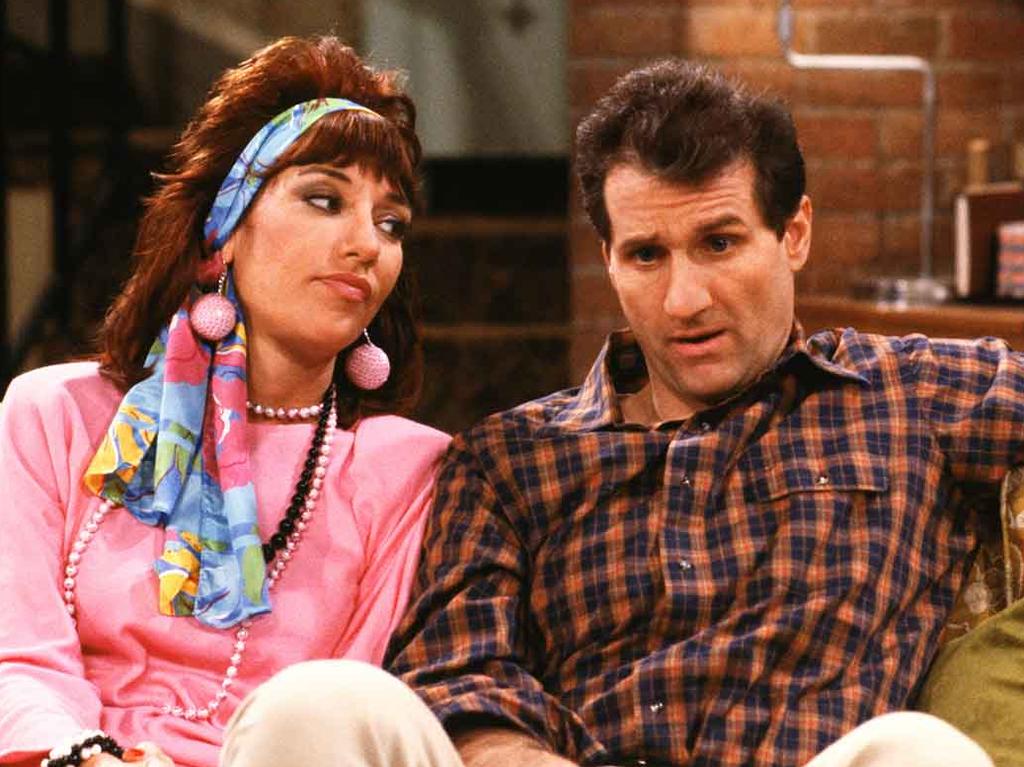For decades, Married with Children was the sitcom America couldn’t stop watching — crude, hilarious, and shockingly relatable. But now, after years of silence, Ed O’Neill has shattered the wholesome sitcom illusion, exposing the explosive feuds, real-life heartbreak, and behind-the-scenes chaos that nearly tore the show apart.

“People think we were a happy TV family,” O’Neill confessed in a recent tell-all interview. “We weren’t. Not even close.”
When Married with Children premiered in 1987, it wasn’t supposed to succeed. Critics slammed it as “disgusting” and “anti-family,” but audiences saw something else — truth hidden under layers of sarcasm and cynicism. The Bundys were dysfunctional, broke, and brutally honest — everything other sitcom families pretended not to be. And it worked. The show became a cultural earthquake, turning O’Neill’s Al Bundy into an everyman icon — the shoe salesman who hated his job, his life, and sometimes even his family.

But the laughter came at a cost. According to O’Neill, the tension behind the cameras was just as real as the insults flying across the Bundy living room. The biggest bombshell? A years-long feud between O’Neill and Amanda Bearse, who played the sharp-tongued neighbor Marcy.
“It started small,” O’Neill admitted. “A magazine cover, a few words taken the wrong way — and suddenly, we weren’t speaking.” Their argument over a TV Guide photoshoot spiraled into a cold war that divided the cast. Crew members recall moments when entire scenes had to be re-blocked just to keep the two from sharing the same frame. “They could roast each other on camera,” one producer said, “but off-set? You could cut the tension with a knife.”
Behind the laughter, other cast members were crumbling. Christina Applegate, just a teenager when she became a household name as Kelly Bundy, later revealed how the industry’s pressures nearly destroyed her. She faced relentless body shaming and tabloid scrutiny, all while smiling through it on screen. “No one knew what she was dealing with,” O’Neill shared somberly. “We all laughed, but Kelly — Christina — carried a lot of pain.”
Even the show’s humor, which made it infamous, became a lightning rod for controversy. Boycotts and protests erupted across America, with moral watchdogs calling it “the end of decency on television.” Ironically, the backlash only fueled its popularity. “The more people tried to cancel us,” O’Neill recalled, “the more people tuned in. We were the family everyone secretly recognized — even if they pretended not to.”

What few knew, however, was how close Married with Children came to collapsing under its own success. By Season 10, cast exhaustion and mounting creative clashes pushed the show to its breaking point. “It stopped being fun,” O’Neill confessed. “We were all burnt out. The jokes weren’t jokes anymore — they were jabs.”
And yet, even amid the dysfunction, there was a strange magic that kept it all together. “For all the fighting and bitterness,” O’Neill said, “we created something real. The Bundys weren’t perfect — and neither were we. That’s why people loved us.”
Now, decades later, talk of a Married with Children animated revival has reignited interest in the show — and in O’Neill’s candid confession. His revelations paint a picture of a cast bound by laughter, divided by pride, and immortalized by chaos.
“We made people laugh,” he said, “but behind those laughs were real tears. Maybe that’s why it still matters.”
In the end, Married with Children wasn’t just a sitcom — it was a raw reflection of real life: messy, hilarious, and heartbreakingly human. And after O’Neill’s shocking revelations, fans will never look at the Bundys — or the man who played their grumpy patriarch — the same way again.







